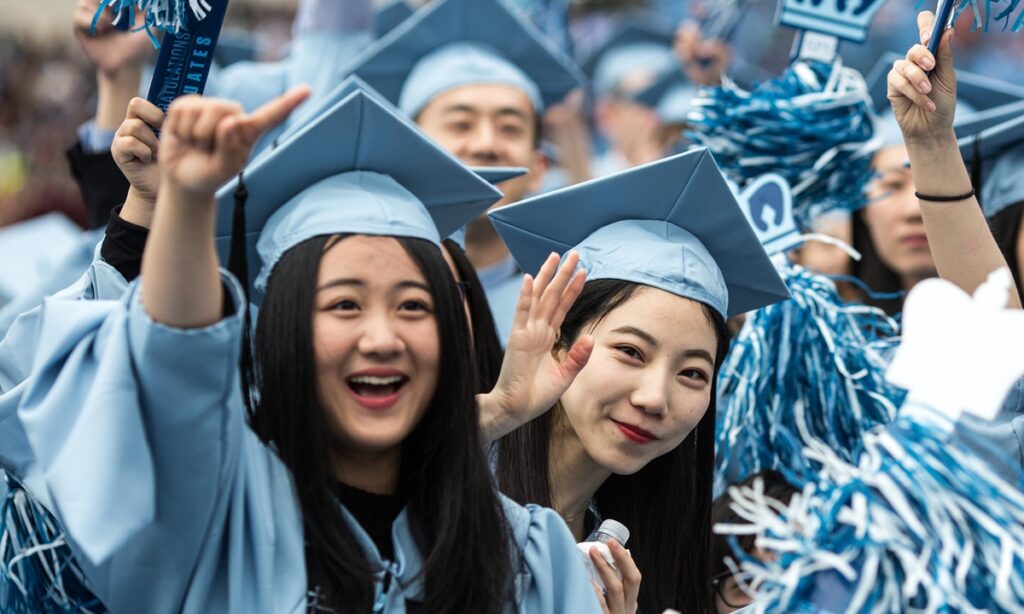During the college enrollment season, some top Chinese universities recently found themselves in hot water as multiple “self-media” online accounts circulated rumors and attacked them for being “unpatriotic” due to the high overseas enrollment rate of their graduates, with some online accounts even citing fake data, which has drawn widespread criticism.
In response, many observers said that whether students study abroad or not has nothing to do with patriotism.
Recently, a rumor claiming that 80 percent of students of Tsinghua University go abroad after graduation went viral online.
In response, an official account of Tsinghua University Student Press Corps refuted the rumor on its WeChat account. Citing data from the university’s annual report on graduate employment, it clarified that in 2018 the proportion of graduates going abroad for further study in the total number of graduates accounted for 16.5 percent, the highest during 2018-2022. And during the past five years, the proportion has roughly declined year after year, reaching 6.9 percent in 2021 and 7.1 percent in 2022, which, according to Tsinghua University Student Press Corps, is not high compared with other domestic universities.
“Supporting study abroad, encouraging return after graduation, and students and graduates making their due contributions whether staying abroad or returning home” is China’s overall policy of overseas study issued by China’s Ministry of Education in October 2020, which is one of the embodiments and ways of high-level opening of the education sector.
According to a survey, after going abroad, most of the students have a clearer understanding of the motherland, and patriotic consciousness has been enhanced.
Zhu Wei, vice director of the Communication Law Research Center at the China University of Political Science and Law, told the Global Times on Wednesday that whether students stay in China or study abroad has nothing to do with patriotism, criticizing that some “self-media” online accounts evaluating the level of universities with the overseas study rate is probably just for grabbing attention.
He pointed out that “patriotism” has been the biggest victim when manipulated by some unscrupulous people for profit. It is worrying that in the age of new media, many media outlets are desperately pursuing “clicks” at the cost of facts and their own credibility.
Zhu called for immediate management and rectification of the rumors to avoid misleading the public and sparking hatred toward the group of overseas Chinese students.
To realize exchanges and mutual learning among world civilizations, China is cultivating international talents in an open and inclusive manner, observers said. The government-sponsored study abroad system has been a major measure of China’s talent cultivation strategy, and continues to support outstanding students to study abroad. For the self-funded students who currently account for the majority, the country has also created various convenient conditions for them to study and live overseas, and provided policy support for them to find employment, start businesses and continue their studies back home.
China will not close its door to the outside world, but will only open even wider in terms of Chinese market, trade, capital, culture and education, observers said.
College students and their families should not bear any moral pressure when making the choice of whether to study abroad; colleges and universities, as the main body of education, do not have to blame themselves for the large number of graduates studying abroad, according to observers.
The number of the job recruiting overseas-educated Chinese is on the rise in recent years as the number of Chinese students returning home to look for jobs hit a record high in 2022, according to a survey on the employment situation of Chinese overseas returnees conducted by Chinese job hunting platform Zhilian Zhaopin.
(Global Times)




